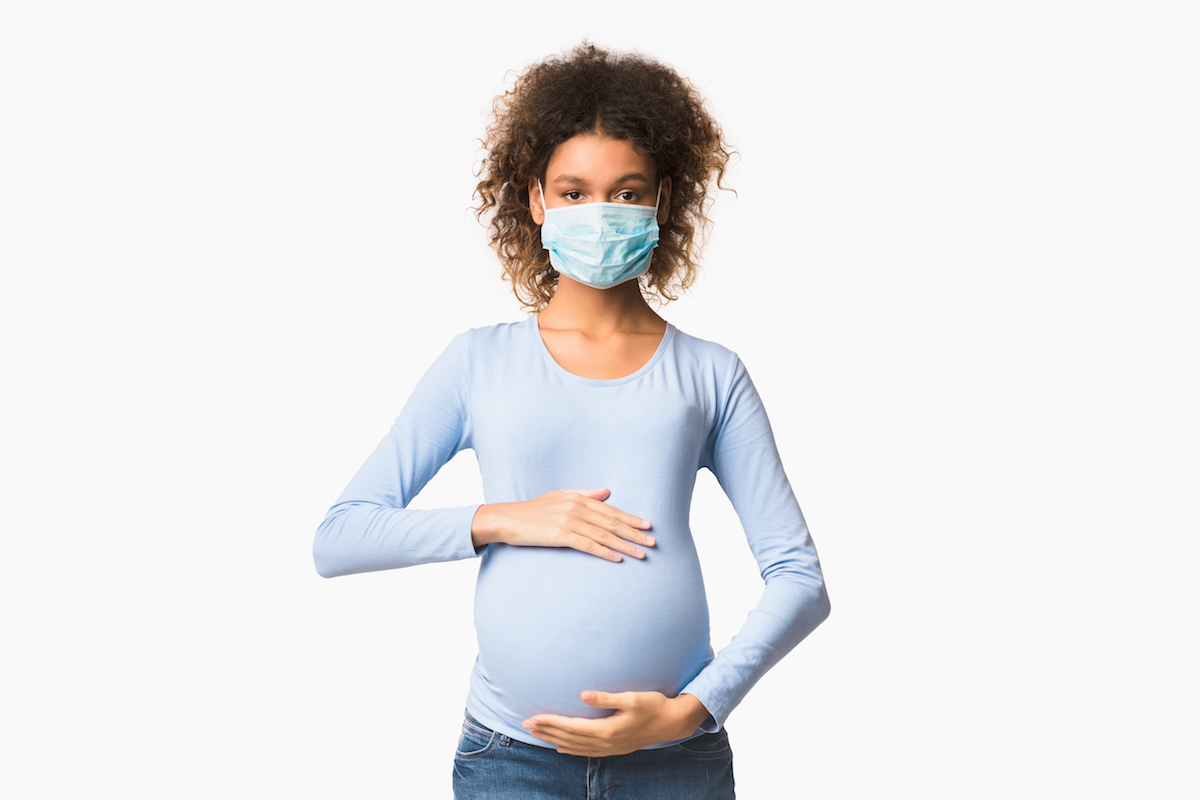By Melissa Laitner, PhD, MPH, Director of Science Policy
In the midst of the global COVID-19 pandemic, pregnant women and new moms are being forced to confront unexpected challenges and possible worst-case scenarios about delivery and the postpartum period.
Many women are experiencing traumatic births — they may be separated from their partners or family during delivery in coronavirus hotspots or have to spend time away from their newborn while undergoing COVID-19 testing to limit possible disease transmission. With stay-at-home orders, new moms are going without the assistance from support systems of family and friends that many new parents rely on postpartum.
These scenarios are overwhelming many pregnant women and new mothers, with isolation and COVID-related stress driving noted increases in mental health services for these women. Experts have expressed concerns that the COVID-19 pandemic may increase the prevalence of perinatal mental health disorders.
Perinatal depression is more than just the “baby blues” and can affect the health of both the mother and child as it increases a woman’s risk of becoming suicidal or hurting her infant. As many as one in seven women experience depression during pregnancy or in the year after giving birth. In the U.S., estimates suggest between 180,000 and 800,000 women are affected by maternal mental health issues annually.
“This was a crisis even before COVID-19,” said Dr. Pooja Lakshmin, a perinatal psychiatrist based in the Washington, D.C., area and an associate professor at George Washington University. However, she confirmed that with the rise of the novel coronavirus, she is “seeing a significant increase in anxiety, obsessions, compulsions, in women who had not had these types of symptoms.”
Lakshmin spoke at a recent virtual congressional briefing, Maternal Mental Health During the COVID-19 Pandemic, which highlighted strategies for women experiencing symptoms of perinatal depression and anxiety, as well as policy strategies for supporting the mental health of pregnant women and mothers in the U.S.
The briefing was hosted by the Maternal Mental Health Leadership Alliance (MMHLA) and other speakers included Dr. Kanika Harris, a member of the D.C. Mayor’s Lactation Commission; Dr. Rahul Gupta, chief medical officer at the March of Dimes; and Adrienne Griffen, executive director at MMHLA.
For women experiencing stress and anxiety during the pandemic, Lakshmin recommended limiting media intake and making sure to obtain COVID-19 information from reliable sources. Setting aside a period of time every day — for example, 10 minutes — to reflect on any anxieties may help to prevent your worries from taking over the entire day. Finally, focusing on areas of your life where you do have agency and control and seeking support from family and friends are crucial to maintaining strong mental health.
Both Gupta and Griffen spoke about policy priorities during the time of coronavirus. Griffen emphasized the need to expand Medicaid eligibility for all eligible new mothers for a full year postpartum and highlighted the need to increase funding for state maternal mental health programs through the U.S. Health Resources and Services Administration’s Screening and Treatment for Maternal Depression and Related Disorders Treatment Program.
Both Gupta and Griffen urged Congress and federal agencies to prioritize women in clinical research and coronavirus vaccine trials, a priority for SWHR. SWHR has pushed for the inclusion of women in clinical trials and recently signed on to a letter requesting that pregnant and lactating women are included in all research surrounding COVID-19 vaccines and therapeutics, and have advocated for inclusion in trials and additional research in our FY21 Labor, Health and Human Services, Education appropriations testimony.
See SWHR’s policy recommendations on mental health during the COVID-19 pandemic here.
